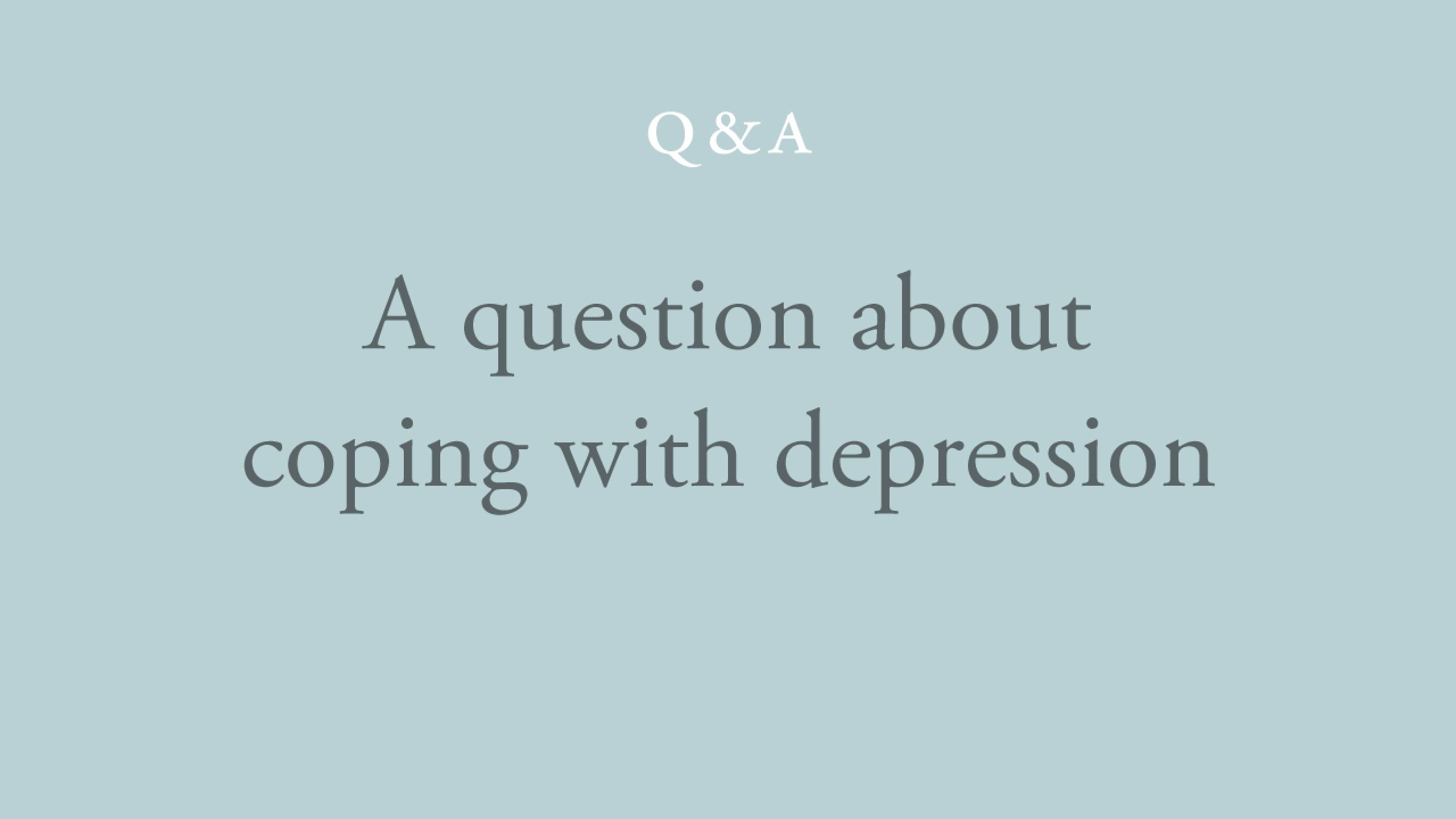I was born with a lot of ancestral trauma, depression and fear. I understand about feeling the feelings to get back to the ‘I’ or ‘I am’ until it comes to depression or fear. They seem so overwhelming, and I still wake up in the morning with a sense of void and depression. So how do I keep going? Is it just a practice of awareness and knowing that the ‘I’ of King Lear is really the ‘I’ of John Smith, and using that on myself? It’s like I’m looking for how to continue the process of awakening to joy and happiness.
In my experience with people who suffer from depression, turning your attention away from the depression, towards the presence of awareness or the self, is not very effective. The depression is more powerful than their ability, not always but very often, and that’s why I wouldn’t recommend turning away from the emotion. That’s just an extension of what you’ve been doing all your life. It’s a more subtle approach than the previous ones, which involved avoiding your depression through other means.
It’s true that this would be the most subtle means, turning away, towards the one that is aware of it. But even more powerful, more effective, I would suggest, is turning towards your depression, and not just turning towards it but really embracing it, loving it. Have you ever turned towards your depression and felt ‘I love you’?
I’ve done that briefly at times with fear, which is probably similar in some ways.
My intuition is that the depression in you is deeper than the fear.
I’ve been told that I’m carrying fifty-five generations of depression on my father’s side.
So the depression is very deep, and as you rightly say, it’s not personal. You’ve inherited it. I would recommend not turning away from it, towards the presence of awareness, although that doesn’t mean to say that you can’t practise that. Do practise self-enquiry, asking yourself, ‘What is it that is aware of my experience?’ Practice self-enquiry in relation to all your other experiences, your thoughts, your perceptions, your activities, but with depression, turn towards it.
Sit down, close your eyes and feel the depression. Don’t just turn towards it; don’t just embrace it; love it. You know what it’s like to really love a person. It’s like that. For example, you may have a very difficult child, but it makes no difference at all. You love them fiercely, however difficult they are, whatever difficult patch they may be going through. It’s the same. It’s unconditional love. It has nothing to do with the quality of the emotion, just as the love has nothing to do with the behaviour of your child.
You love it unconditionally. You welcome it, bring it close, bring it into your heart, bathe it with love, hold it in the arms of your heart. And that’s it, for no reason. If you do it for a reason, that’s like the old habit of trying to get rid of it. You don’t try to get rid of your child who’s being difficult. No, you bring them close, forever. Try that. In doing this, in a way that we can’t really understand and it’s difficult to talk about, you will be helping not only yourself but your family, your previous generations. Somehow, you will be helping them.

